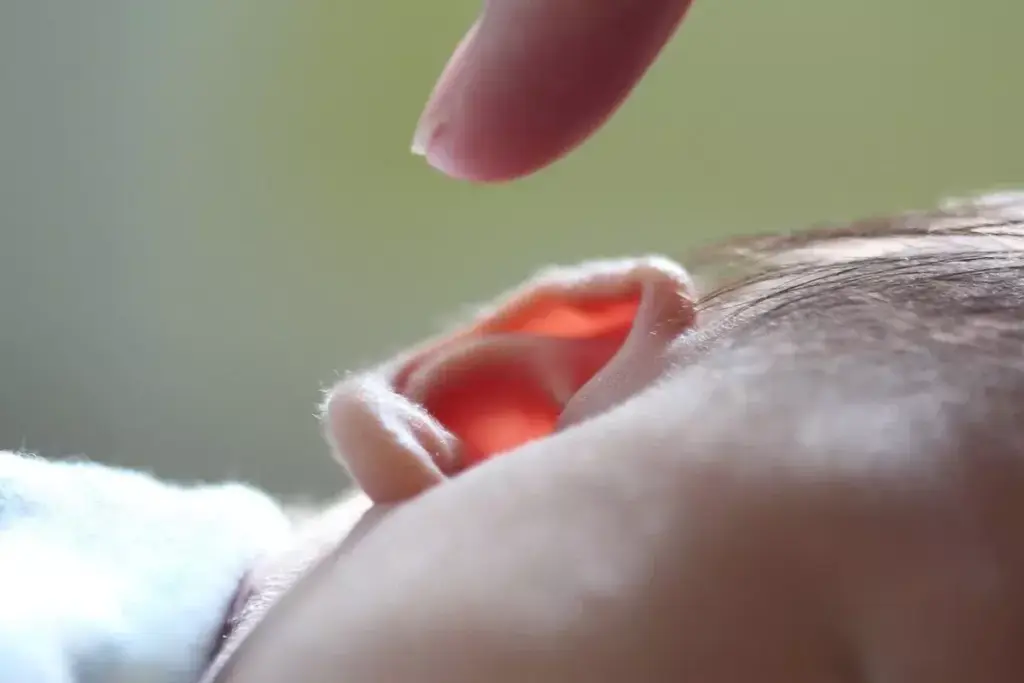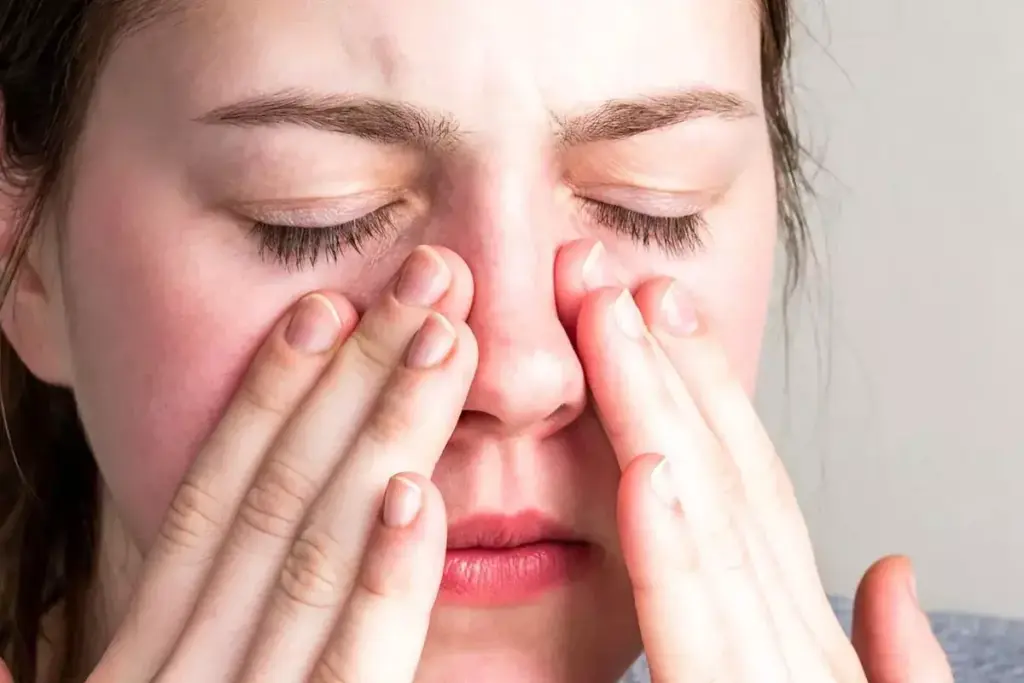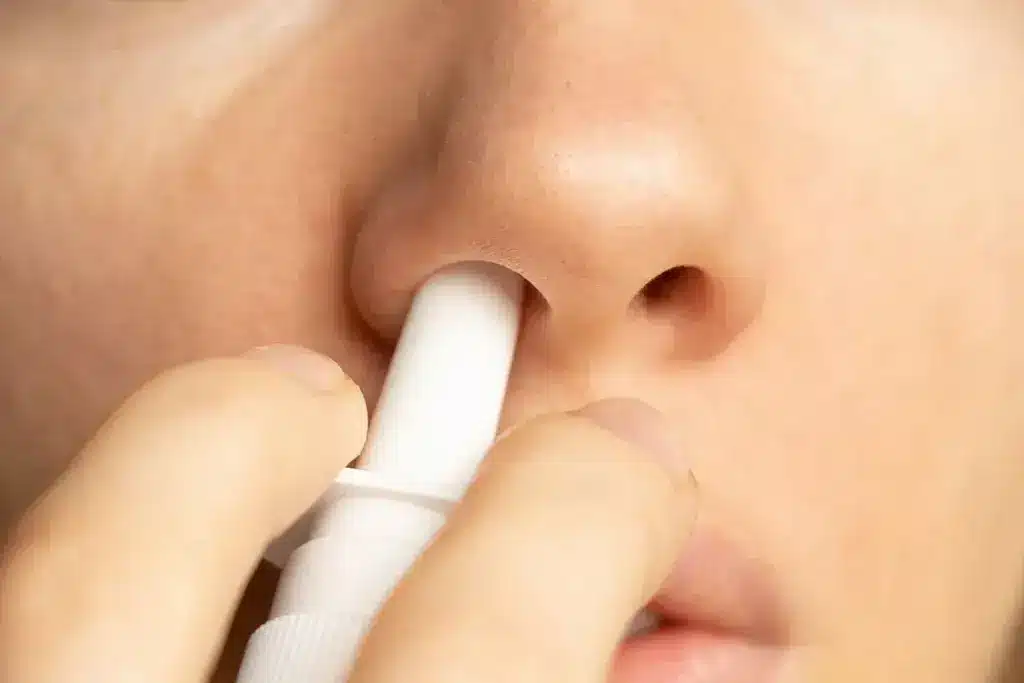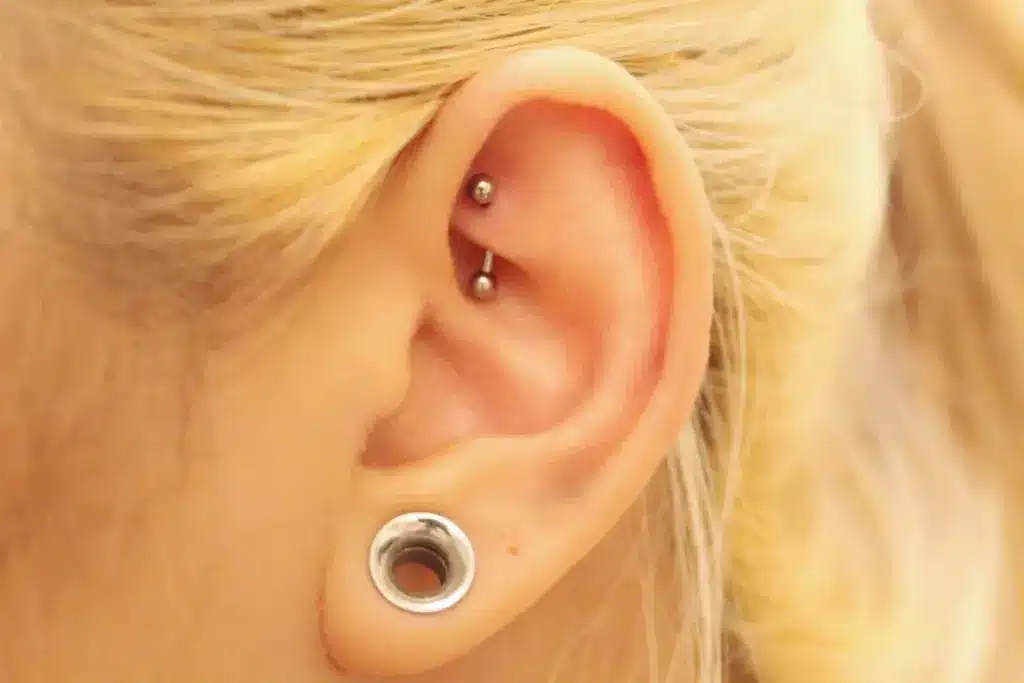
Research shows a strong link between hypothyroidism and depression. Hypothyroidism happens when the thyroid gland doesn’t make enough thyroid hormones. These hormones are key for many body functions, including mood.
At Liv Hospital, we use top medical skills and focus on the patient to find the link between thyroid function and depression. Knowing this connection is key to solving complex health issues.
The bond between hypothyroidism and depression is complex. Spotting the signs of low thyroid-induced depression is critical for good treatment. Many patients wonder, “does low thyroid cause depression?” — and yes, low thyroid hormone levels can disrupt brain chemistry, leading to mood changes, fatigue, and sadness.
Key Takeaways
- Hypothyroidism is linked to an increased risk of depressive symptoms.
- Thyroid hormones play a vital role in mood regulation.
- Understanding the link between thyroid function and mental health is essential.
- Liv Hospital offers patient-centered care for complex health concerns.
- Identifying signs of low thyroid-induced depression is key for effective treatment.
The Connection Between Thyroid Function and Mental Health

Research shows a strong link between thyroid problems and mental health issues. The thyroid gland makes hormones that help control brain activity and mood. This is why thyroid issues can affect how we feel.
Thyroid hormones are key for a healthy brain. They help make neurotransmitters like serotonin and dopamine, which are important for our mood. Studies have found that people with hypothyroidism often feel depressed. This shows how closely thyroid health is tied to our mental state.
The Role of Thyroid Hormones in Brain Function
Thyroid hormones, like T3 and T4, are vital for brain health. They help control genes that make neurotransmitters and help neurons grow. A lack of these hormones can harm brain function and lead to depression.
“Thyroid hormones are essential for regulating neurotransmitters. These are key for a healthy mood and thinking clearly.”
How Hormone Imbalances Affect Mood Regulation
When thyroid hormone levels are off, it can mess with mood. Low thyroid hormone means less serotonin, which is bad for mood. This can cause depression symptoms.
Also, thyroid issues can change how fast we metabolize, affecting energy and mental health. It’s important to spot thyroid-related depression early for the right treatment.
Understanding Hypothyroidism: The Basics

It’s important to know about hypothyroidism to see how it links to health problems like depression. This condition happens when the thyroid gland doesn’t make enough thyroid hormones. These hormones are key for many body functions.
What is an Underactive Thyroid?
An underactive thyroid, or hypothyroidism, is when the thyroid gland doesn’t make enough thyroid hormones. These hormones help control how fast your body burns energy and how well it works. Symptoms can include feeling very tired, gaining weight, and having dry skin.
Key aspects of hypothyroidism include:
- Reduced metabolic rate
- Increased risk of cardiovascular diseases
- Potential impact on mental health, including depression
Common Causes of Hypothyroidism
Hypothyroidism can come from several things, like autoimmune disorders, radiation therapy, and some medicines. Knowing these causes helps doctors figure out what’s wrong and how to treat it.
| Cause | Description |
| Autoimmune Disorders | Conditions like Hashimoto’s thyroiditis, where the immune system attacks the thyroid gland. |
| Radiation Therapy | Treatment involving radiation can damage the thyroid gland, leading to hypothyroidism. |
| Certain Medications | Some medications, such as lithium, can interfere with thyroid function. |
Learning about hypothyroidism helps people understand its causes and how it affects the body. This knowledge can help in diagnosing and treating it. It might also help with symptoms of low thyroid and depression.
Does Low Thyroid Cause Depression? The Scientific Evidence
The link between hypothyroidism and depression has been studied a lot. Research has shown how thyroid function affects our mood.
Many studies have looked into how hypothyroidism and depression are connected. They found a strong link between the two.
Research Findings on the Relationship
Research shows people with hypothyroidism often feel depressed. A study in the Journal of Affective Disorders found a clear link between thyroid issues and depression. This shows how important thyroid health is for our mental well-being.
A study in the Journal of Clinical Endocrinology and Metabolism found more depression in people with hypothyroidism. It suggests doctors should check thyroid levels when treating depression.
“The prevalence of depressive symptoms in patients with hypothyroidism is significantly higher than in the general population, underscoring the complex relationship between thyroid function and mental health.”
– Journal of Clinical Endocrinology and Metabolism
Statistical Correlation Between Hypothyroidism and Depression
Studies have shown a strong connection between hypothyroidism and depression. A review found more depression in people with hypothyroidism than those with normal thyroid levels.
| Study | Sample Size | Prevalence of Depression in Hypothyroidism |
| Journal of Affective Disorders | 1,000 | 35% |
| Journal of Clinical Endocrinology and Metabolism | 500 | 42% |
| Thyroid Journal | 800 | 30% |
The table shows depression is more common in people with hypothyroidism. This pattern is seen in many studies.
In summary, research clearly shows a strong link between hypothyroidism and depression. Knowing this helps us find better ways to treat both conditions together.
The Biological Mechanisms Behind Hypothyroid Depression
It’s important to understand how hypothyroid depression works. Thyroid hormones control many body functions. This includes how we feel and think.
Neurotransmitter Disruption
One main reason for hypothyroid depression is how it messes with neurotransmitters. These chemicals, like serotonin and dopamine, help us feel good. Studies show that hypothyroidism can lower these levels, making us feel sad.
Serotonin is very important for our mood. When we have low thyroid levels, we make less serotonin. This can make us feel depressed.
Brain Metabolism Changes
Hypothyroidism also changes how our brain works. Thyroid hormones help our brain use glucose. In hypothyroidism, our brain uses less glucose, affecting how it works.
A study using PET scans showed that hypothyroidism lowers brain glucose use. This can lead to depression.
Hormonal Pathway Interactions
Another key factor is how thyroid hormones interact with other hormones. The HPA axis, which handles stress, is connected to thyroid function. When the HPA axis is off, we can feel depressed.
| Biological Mechanism | Effect on Mental Health |
| Neurotransmitter Disruption | Decreased serotonin and dopamine levels contribute to depressive symptoms |
| Brain Metabolism Changes | Reduced glucose metabolism in the brain affects mood regulation |
| Hormonal Pathway Interactions | Dysregulation of the HPA axis contributes to depressive symptoms |
In summary, hypothyroid depression is caused by complex interactions. These include thyroid hormones, neurotransmitters, brain metabolism, and hormones. Knowing this helps us find better treatments.
Recognizing Depression Symptoms Caused by Low Thyroid
Depression often goes hand in hand with hypothyroidism. It’s important to spot its signs for proper treatment. An underactive thyroid can really affect your mood, making it hard to tell if you’re depressed.
Emotional and Cognitive Signs
Depression from a low thyroid can show in many ways. People might feel sad all the time, hopeless, or empty. They might also find it hard to focus or make choices.
These signs can be mistaken for stress or being too busy. So, it’s key to check your thyroid levels when you’re feeling down.
Those with hypothyroidism might also feel irritable, anxious, or have mood swings. These feelings can be confused with other mental health issues. The mix of thyroid hormones and brain chemicals can make these feelings complex.
Physical Manifestations
Hypothyroid depression also shows in physical ways. You might feel really tired, gain weight, or have changes in how you eat or sleep. These signs can sometimes hide the depression, making it harder to get diagnosed.
Other signs include dry skin, hair loss, feeling cold all the time, and muscle weakness. These are more directly linked to thyroid issues and can hint at the cause of your depression.
How They Differ from Primary Depression
Depression from hypothyroidism is different from regular depression. It often comes with more physical symptoms. For example, feeling tired, gaining weight, or changes in sleep and appetite.
Knowing these differences helps doctors create the right treatment plan. While regular depression might need medication, treating hypothyroid depression often means fixing the thyroid first.
Overlapping Symptoms: Why Diagnosis Can Be Challenging
Diagnosing hypothyroid depression is tricky because it looks a lot like primary depression. Both have many symptoms that make it hard to tell them apart. Getting a correct diagnosis needs a deep understanding of both conditions.
Shared Symptoms Between Depression and Hypothyroidism
Depression and hypothyroidism share symptoms like feeling tired, gaining weight, and appetite changes. It’s hard to figure out if these symptoms come from thyroid issues or depression. A study showed that people with hypothyroidism often feel depressed. This can lead to thinking the depression is just from the thyroid if it’s not checked.
“Depression in people with hypothyroidism is common,” a study said. “It’s hard to tell them apart just by how they feel.”
Distinguishing Features
Even though symptoms overlap, there are key differences that help diagnose hypothyroid depression. For example, hypothyroidism often causes dry skin, hair loss, and feeling cold. These signs can help doctors make a better diagnosis.
- Dry skin and hair loss
- Cold intolerance
- Significant weight gain
Lab tests, like thyroid function tests, are also key. They help find out if hypothyroidism is causing the depression symptoms.
In short, while it’s hard to tell depression and hypothyroidism apart, careful checks and tests can help. This way, doctors can give the right treatment.
Subclinical Hypothyroidism and Its Impact on Mood
Mild thyroid dysfunction, known as subclinical hypothyroidism, affects mood. It shows high Thyroid-Stimulating Hormone (TSH) levels but normal thyroid hormones (T4 and T3). This indicates a mild thyroid problem.
What is Subclinical Hypothyroidism?
Subclinical hypothyroidism means the thyroid doesn’t make enough hormones. But it’s not as severe as overt hypothyroidism. It’s diagnosed by blood tests showing high TSH levels, usually over 4.0 mIU/L, with T4 and T3 in the normal range.
Prevalence of subclinical hypothyroidism varies. It’s more common in women and grows with age. About 4-10% of people have it.
How Mild Thyroid Dysfunction Affects Mental Health
Subclinical hypothyroidism can deeply affect mental health, like mood. People with it might feel depressed, anxious, or have trouble thinking. These feelings can happen even without the usual signs of hypothyroidism.
- Increased risk of depressive episodes
- Impaired cognitive function
- Mood swings and irritability
The exact ways subclinical hypothyroidism affects mental health are not clear. But, even a small lack of thyroid hormones can mess with brain chemicals and metabolism.
Detection Challenges in Clinical Settings
Diagnosing subclinical hypothyroidism is hard because its symptoms are mild. Doctors use TSH tests to find it.
Diagnostic criteria include TSH levels above normal, with T4 and T3 in the normal range. But, what TSH level is best for diagnosis is debated.
Finding subclinical hypothyroidism can be tricky. It needs a detailed check-up to tell it apart from other similar conditions.
Diagnosing Thyroid-Related Depression
It’s important to accurately diagnose depression linked to hypothyroidism. This is key for effective treatment and care. Diagnosing this depression involves a detailed evaluation of both thyroid function and mental health.
Essential Blood Tests and Evaluations
To diagnose hypothyroidism depression, healthcare providers use several important tools. These include:
- TSH (Thyroid-Stimulating Hormone) test: The main test for checking thyroid function.
- Free T4 and Free T3 tests: These measure thyroid hormone levels in the blood.
- Thyroid antibody tests: To find autoimmune thyroiditis, a common cause of hypothyroidism.
Along with these blood tests, a detailed clinical evaluation is needed. This involves checking for symptoms of depression, like constant sadness, loss of interest, and changes in appetite or sleep.
When to Suspect Thyroid Issues in Depression Cases
Healthcare providers should think about thyroid problems when looking at patients with depression. This is true if they show:
- Unusual or severe depressive symptoms.
- Don’t respond well to usual antidepressants.
- Physical signs like fatigue, weight gain, or feeling cold all the time.
Noticing thyroid issues in these cases can help find better treatment plans.
The Diagnostic Process
The process to diagnose thyroid-related depression is complex. It includes:
- First, screening with TSH and free T4 tests.
- More tests, like free T3 and thyroid antibodies, if needed.
- Checking for depressive symptoms and overall mental health.
By using these methods, healthcare providers can accurately spot thyroid-related depression. They can then create a proper treatment plan.
Treatment Approaches for Hypothyroidism Depression
Treating hypothyroidism depression is complex. It needs a mix of treatments. This approach tackles both the thyroid issue and the depression.
Thyroid Hormone Replacement Therapy
Thyroid hormone replacement is key for hypothyroidism. It uses synthetic hormones to fix thyroid levels. Levothyroxine is often used for this.
This therapy helps with depression linked to hypothyroidism. But, some people might not feel better even with normal thyroid levels. They might need more help for their depression.
Antidepressant Medications
For those with hypothyroidism and depression, antidepressants can help. They work by balancing brain chemicals. SSRIs are a common choice because they’re effective and have fewer side effects.
Finding the right antidepressant and dosage is important. It’s best to work with a healthcare provider to find what works best for you.
Combination Approaches
At times, a mix of treatments is needed. This might include thyroid hormone replacement and antidepressants. It’s a more detailed plan that covers both the hormonal issue and the depression.
Changing your diet, exercising, and managing stress can also help. These lifestyle changes support your mental health and overall well-being.
When to Seek Medical Help
It’s important to know when to get medical help if you’re feeling down because of hypothyroidism. The link between hypothyroidism and depression is tricky. Getting help early can really help your treatment.
Warning Signs That Require Immediate Attention
Some symptoms need immediate help. These include:
- Severe depression that makes daily life hard
- Thoughts of harming yourself or suicide
- Changes in how you think or feel, like confusion
- Worsening of hypothyroidism symptoms, like extreme tiredness or feeling very cold
If you or someone you know is showing these signs, get help right away. Early action can stop symptoms from getting worse and make treatment work better.
Finding the Right Healthcare Provider
Finding a doctor who knows about both hypothyroidism and depression is key. Here’s what to look for:
- Choose doctors who specialize in thyroid issues
- Make sure they work well with mental health experts when needed
- They should be willing to talk about treatment options and answer your questions
A good doctor will take care of your physical health and also think about your mental health.
Questions to Ask Your Doctor
Being ready for your doctor’s visit can help you get the most out of it. Ask these questions:
- What might be causing my depression, and could hypothyroidism play a role?
- What tests do I need to check if I have hypothyroidism?
- What treatments are there for both hypothyroidism and depression?
- How will we keep track of how well the treatment is working?
Asking these questions can help you understand your condition and the treatments available. This way, you can make informed choices about your care.
Lifestyle Modifications to Support Thyroid Health and Mental Wellbeing
Making lifestyle changes is key to managing hypothyroidism and depression. By choosing the right diet, exercise, stress management, and sleep, you can boost your thyroid health and mental wellbeing.
Dietary Considerations
Eating a balanced diet is vital for your thyroid. Foods rich in iodine, selenium, and zinc are important. Include seafood, nuts, and eggs in your meals.
Be careful of foods that might harm your thyroid. Soy and broccoli can affect hormone production if eaten too much. Aim for a balanced diet instead of avoiding certain foods.
| Nutrient | Food Sources | Benefit to Thyroid Health |
| Iodine | Seaweed, iodized salt, dairy products | Essential for thyroid hormone production |
| Selenium | Nuts, fish, turkey | Protects the thyroid gland from damage |
| Zinc | Red meat, poultry, beans | Supports immune function and thyroid hormone production |
Exercise and Stress Management
Regular exercise is vital for your health, including your thyroid and mood. It can help with depression symptoms and boost energy.
“Exercise is a celebration of what your body can do, not a punishment for what you ate.” – Unknown
Managing stress is also important. Try meditation, yoga, and deep breathing to reduce stress and relax.
- Meditation: Practice mindfulness to reduce stress
- Yoga: Combine physical movement with deep breathing techniques
- Deep Breathing Exercises: Simple techniques to promote relaxation
Sleep Optimization
Getting enough sleep is essential for your thyroid and mental health. Poor sleep can worsen hypothyroidism and depression symptoms.
To sleep better, stick to a schedule, have a calming bedtime routine, and avoid screens before bed. A sleep-friendly environment can also help.
By adopting these lifestyle changes, you can manage hypothyroidism and depression better. This will improve your overall health and wellbeing.
Conclusion: Living Well with Thyroid Conditions and Depression
Living well with thyroid conditions and depression needs a full plan. This plan includes medical care, lifestyle changes, and ongoing support. It’s key to understand how hypothyroidism and depression are connected.
Recognizing depression signs linked to low thyroid is important. Getting medical help quickly is vital. Treatment like thyroid hormone therapy and antidepressants can help a lot.
Changing your diet, exercising regularly, and managing stress can help too. These steps support both thyroid health and mental well-being. People with thyroid disease and depression can live fulfilling lives with a holistic approach.
Managing hypothyroidism and depression well requires both medical care and self-care. Working with healthcare providers and making smart lifestyle choices is essential. This way, individuals can manage their condition better and enjoy a better quality of life.
FAQ
Can hypothyroidism cause depression?
Yes, hypothyroidism can lead to depression. Studies show a strong link between the two. People with hypothyroidism often feel sad and have trouble concentrating.
What are the symptoms of depression caused by low thyroid?
Depression from low thyroid shows in many ways. You might feel sad, hopeless, or have trouble focusing. You could also feel very tired, gain weight, or have sleep problems.
How does subclinical hypothyroidism affect mental health?
Subclinical hypothyroidism can affect your mind a lot. It might make you feel depressed or anxious, even if your thyroid isn’t severely off.
What is the role of thyroid hormone replacement therapy in treating hypothyroidism depression?
Treatment for hypothyroidism depression often includes hormone replacement. This helps bring thyroid hormone levels back to normal. It aims to improve mood and energy.
Can antidepressant medications be used to treat hypothyroidism depression?
Yes, antidepressants might be used to treat depression in people with hypothyroidism. They’re often given along with hormone replacement therapy.
How can lifestyle modifications support thyroid health and mental wellbeing?
Making healthy lifestyle choices can help your thyroid and mind. Eating right, exercising, managing stress, and getting enough sleep are all important.
What are the challenges of diagnosing hypothyroid depression?
Diagnosing hypothyroid depression can be tough. Symptoms can be similar to regular depression. Doctors need to do blood tests and evaluations to figure out what’s causing your symptoms.
When should I seek medical help for hypothyroidism depression?
If you’re feeling really down or have severe symptoms, get help right away. This includes feeling suicidal or having trouble doing daily things.
Can thyroid problems cause depression?
Yes, thyroid issues, like hypothyroidism, can lead to depression.
Does hypothyroidism cause depression?
Hypothyroidism can contribute to depression. But the exact reasons are complex and involve many factors.
How does low thyroid cause depression?
Low thyroid can cause depression by messing with brain chemicals and metabolism. It affects how hormones work, leading to mood changes.
References
- Ljubičić, N., et al. (2015). Biliary leakage after urgent cholecystectomy. Journal of Hepato-Biliary-Pancreatic Sciences. Retrieved from










